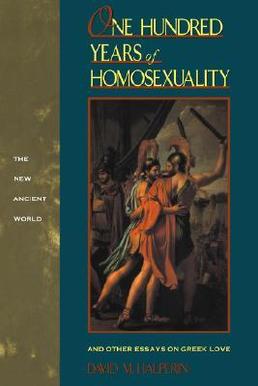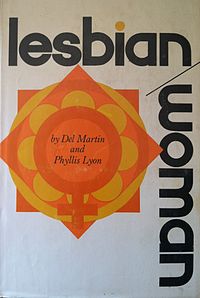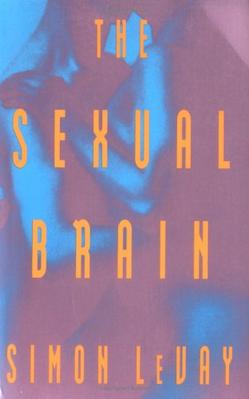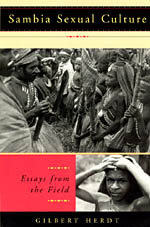
Eros and Civilization: A Philosophical Inquiry into Freud is a book by the German philosopher and social critic Herbert Marcuse, in which the author proposes a non-repressive society, attempts a synthesis of the theories of Karl Marx and Sigmund Freud, and explores the potential of collective memory to be a source of disobedience and revolt and point the way to an alternative future. Its title alludes to Freud's Civilization and Its Discontents (1930). The 1966 edition has an added "political preface".

Knowledge and Human Interests is a 1968 book by the German philosopher Jürgen Habermas, in which the author discusses the development of the modern natural and human sciences. He criticizes Sigmund Freud, arguing that psychoanalysis is a branch of the humanities rather than a science, and provides a critique of the philosopher Friedrich Nietzsche.
Robin Michele Mathy is a researcher and activist who has published four books and more than 50 peer-reviewed articles or book chapters.
Frederick Lee "Fred" Whitam was an American sociologist who studied homosexuality from a cross-cultural perspective. Scholar Paul Vasey described Whitam as "an essentialist during a time of rampant social constructionism."

Sexual Preference: Its Development in Men and Women (1981) is a book about the development of sexual orientation by the psychologist Alan P. Bell and the sociologists Martin S. Weinberg and Sue Kiefer Hammersmith, in which the authors reevaluate what were at the time of its publication widely held ideas about the origins of heterosexuality and homosexuality, sometimes rejecting entirely the factors proposed as causes, and in other cases concluding that their importance had been exaggerated. Produced with the help of the American National Institute of Mental Health, the study was a publication of the Institute for Sex Research. Together with its Statistical Appendix, Sexual Preference was the conclusion of a series of books including Homosexuality: An Annotated Bibliography (1972) and Homosexualities: A Study of Diversity Among Men and Women (1978), both co-authored by Bell and Weinberg.

One Hundred Years of Homosexuality: and other essays on Greek love is a 1990 book about homosexuality in ancient Greece by the classicist David M. Halperin, in which the author supports the social constructionist school of thought associated with the French philosopher Michel Foucault. The work has been praised by several scholars, but criticized by others, some of whom have attributed to Halperin the view that the coining of the word "homosexuality" in the nineteenth century brought homosexuality into existence. The book was often reviewed alongside John J. Winkler's The Constraints of Desire (1990).

A Separate Creation: The Search for the Biological Origins of Sexual Orientation, also published with the subtitle How Biology Makes Us Gay, is a 1996 book about the development of sexual orientation by the journalist Chandler Burr. It received mainly positive reviews, commending it as a useful discussion of scientific research on sexual orientation and the politics surrounding the issue.

Homosexuality: A Philosophical Inquiry is a 1988 book by the philosopher Michael Ruse, in which the author discusses different theories of homosexuality, evaluates the moral status of homosexual behavior, and argues in favor of gay rights.

Freud: The Mind of the Moralist is a book about Sigmund Freud, the founder of psychoanalysis, by the sociologist Philip Rieff, in which the author places Freud and psychoanalysis in historical context. Rieff described his goal as being to "show the mind of Freud ... as it derives lessons on the right conduct of life from the misery of living it."

Lesbian/Woman is a work by the feminist and gay rights activists Del Martin and Phyllis Lyon, in which the authors discuss what it means to be a lesbian. The book was influential and is considered a foundational text of lesbian feminism. Reviewers believed that it benefited from its authors' personal experience as lesbians, and endorsed its criticisms of the treatment of lesbians by religious and professional organizations.

Marxism and the Oppression of Women: Toward a Unitary Theory is a book by the sociologist Lise Vogel that is considered an important contribution to Marxist Feminism. Vogel surveys Karl Marx and Friedrich Engels's comments on the causes of women's oppression, examines how socialist movements in Europe and in the United States have addressed women's oppression, and argues that women's oppression should be understood in terms of women's role in social reproduction and in particular in reproducing labor power.

Marxism and Morality is a 1985 book about Marxist ethics by the political and social theorist Steven Lukes. The book was praised by commentators, who credited Lukes with showing the paradoxes inherent within Marxist approaches to morality. It has been called a classic introduction.

Sex Offenders: An Analysis of Types is a 1965 book about sex offenders by the anthropologist Paul Gebhard, the sociologist John Gagnon, the sexologist Wardell Pomeroy, and Cornelia Christenson. It was a publication of the Institute for Sex Research.

The Homosexual Matrix is a book by American psychologist Clarence Arthur Tripp, in which the author discusses the biological and sociological implications of homosexuality, and also attempts to explain heterosexuality and bisexuality. The book was first published in 1975 by McGraw-Hill Book Company; it was republished in a revised edition in 1987. Based on his review of the evidence, Tripp argues that people do not become homosexual due to factors such as hormone levels, fear of the opposite sex, or the influence of dominant and close-binding mothers, and that the amount of attention fathers give to their sons has no effect on the development of homosexuality. He criticizes Sigmund Freud and argues that psychoanalytic theories of the development of homosexuality are untenable and based on false assumptions. He maintains that sexual orientation is not innate and depends on learning, that early puberty and early masturbation are important factors in the development of male homosexuality, and that a majority of adults are heterosexual because their socialization has made them want to be heterosexual. He criticizes psychotherapeutic attempts to convert homosexuals to heterosexuality and argues in favor of social tolerance of homosexuality and non-conformist behavior in general.

The Sexual Brain is a 1993 book about brain mechanisms involved in sexual behavior and feelings, and related topics such as sexual orientation, by the neuroscientist Simon LeVay. The book was praised as a well-written work on science. However, some reviewers pointed out factual errors, and noted that LeVay failed to prove that homosexuality has a biological basis.

The Taming of Chance is a 1990 book about the history of probability by the philosopher Ian Hacking. First published by Cambridge University Press, it is a sequel to Hacking's The Emergence of Probability (1975). The book received positive reviews.
Homosexuality: Disease or Way of Life? is a 1956 book by the psychoanalyst Edmund Bergler, in which the author argues that homosexuality is a curable illness. Bergler denies that homosexuality is caused by hormonal or other biological factors, the Oedipus complex, or having a dominant mother and a weak or absent father, instead attributing both male and female homosexuality to pre-Oedipal factors involving an unsolved masochistic conflict with the mother during the earliest period of infancy. According to Bergler, homosexuality in men reflects unconscious fear and hatred of women. Bergler argues that there are several different types of homosexuality, each with a distinct clinical profile. Bergler rejects the existence of bisexuality, maintaining that all supposed bisexuals are homosexuals, and criticizes the work of sex researcher Alfred Kinsey. He characterizes homosexual men as sexually promiscuous, and argues that this promiscuity is a result of their unsatisfying sex lives and masochistic craving for danger. Bergler argues against immediately repealing laws against homosexuality, though he suggests that such laws could perhaps be repealed in the future if other measures against homosexuality proved effective. Bergler proposes the publicizing of his ideas as a measure against homosexuality.

Sexuality and Its Discontents: Meanings, Myths, and Modern Sexualities is a 1985 book about the politics and philosophy of sex by the sociologist Jeffrey Weeks. The book received positive reviews, crediting Weeks with explaining the theories of sexologists and usefully discussing controversial sexual issues. However, Weeks was criticised for his treatment of feminism and sado-masochism.

Sex and Reason is a 1992 book about human sexuality by the economist and federal judge Richard Posner, in which the author attempts to explain sexual behavior in economic terms and discusses a range of controversial subjects related to sex, proposing reforms in American laws.

Sambia Sexual Culture: Essays from the Field is a 1999 book about the Simbari people and their sexual practices by the anthropologist Gilbert Herdt. The book received negative reviews, accusing Herdt of being biased in his approach and his conclusions. In the book the Simbari people are called Sambia people
















